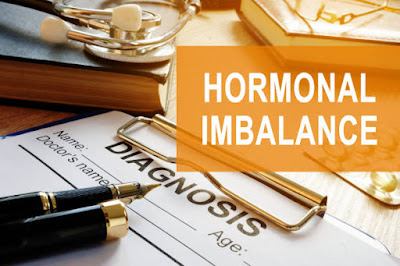Hormone Therapy: What You Need To Know
Hormone therapy is a set of treatments that help patients with hormone related issues to regain their health. It is often used for conditions such as low testosterone, polycystic ovarian syndrome, and menopause. However, It can also be used for other reasons such as weight loss and sexual function.
 |
What Is Hormone Replacement Therapy?
Hormone replacement therapy (HRT) is a treatment that uses hormones to help alleviate symptoms of menopause, such as hot flashes, mood swings, vaginal dryness and insomnia. The hormones used in HRT are typically taken orally or injected directly into the bloodstream. HRT is most often prescribed after menopause, but can also be used before or during menopause if needed.
There are a few things you need to know about HRT before starting it:
-HRT isn't a cure for menopause. It only helps relieve symptoms.
-HRT may increase the risk of breast cancer. However, this risk is relatively low and is usually decreased by using preventive measures such as yearly mammograms and breastfeeding.
-HRT can also cause other serious side effects, including stroke, blood clots in the veins, heart attacks and uterine cancer. If you are considering taking HRT, be sure to speak with your doctor about all the risks and benefits involved.
Benefits of HRT
There are many benefits to hormone therapy for women, both long-term and short-term. Here are just a few:
1. Improved Mood and Mental Health: Mood swings and emotional roller coasters can be a reality for many women during perimenopause and postmenopause. Hormone therapy has been shown to improve mood in these women by regulating the levels of hormones that affect mood. In some cases, it has also been shown to reduce the incidence of depression.
2. Reduced Hot Flashes: Hot flashes are a common problem during perimenopause and postmenopause, and they can be debilitating. Hormone therapy has been shown to significantly reduce the number and severity of hot flashes in many women.
3. Enhanced Libido: Libido is often reduced during perimenopause and postmenopause, as estrogen levels drop. Hormone therapy has been shown to increase libido in many women, which can be a key factor in maintaining sexual activity throughout this time period.
4. Increased Bone Density: The decrease in estrogen levels during perimenopause and postmenopause can lead to an increased risk of bone
Side Effects and Pregnancy with HRT
HRT can be a safe and effective treatment for many women, but like any medication there are potential side effects. Here are some of the most common ones:
-Hot flashes
-Weight gain
-Mood changes
-Depression or anxiety
-Insomnia
-Nausea and vomiting
-Breast tenderness or enlargement
-Distorted body image
Menstrual Cycle and Your Hormones
There are many myths and misconceptions about women's menstrual cycles. Here are the facts:
1. Menstrual cycles occur in response to the monthly release of an egg from the ovary. This cycle usually lasts around 28 days, although it can vary from woman to woman.
2. Each menstrual cycle is composed of three phases: the follicular phase, the luteal phase, and the ovulatory phase. During the follicular phase, your estrogen levels are high and your progesterone levels are low. This is when you will most likely experience your heaviest flow. The luteal phase is when your estrogen levels decrease and your progesterone levels increase. This is when you will likely experience a less intense flow. The ovulatory phase is when you are most likely to conceive.
3. Although each woman experiences her menstrual cycle differently, there are some general changes that occur during each cycle. These changes include an increase in blood flow, an increase in hormones, and an increase in belly fat storage (due to an elevated level of aromatase). Many women also report feeling more moody or emotional during their periods.
If you're looking for a doctor that is highly experienced in hormone therapy, look no further than Dr. Uribe at AB Hormone Therapy. He has been providing this type of treatment to patients for years and is well-versed in all the latest developments in the field. He will take the time to understand your specific needs and concerns, and help you find the best way to manage your symptoms. Contact him today to schedule a consultation!



Comments
Post a Comment